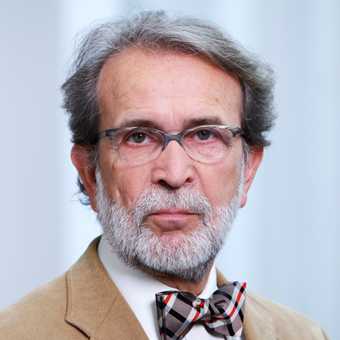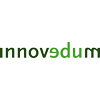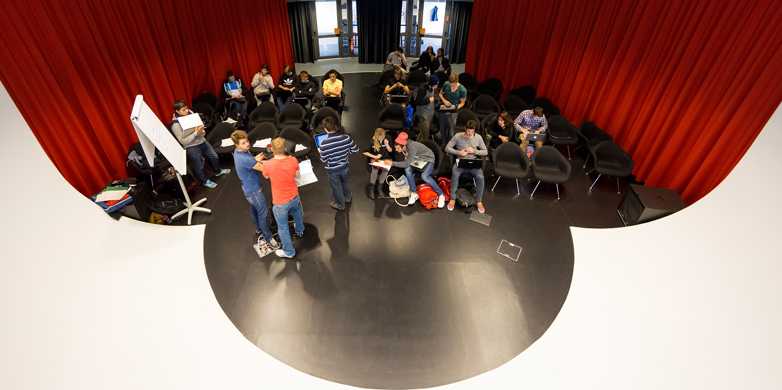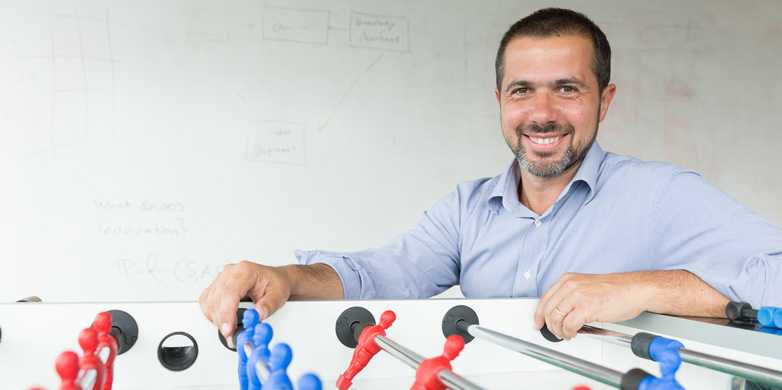Effective leadership through self-reflection
Teaching at ETH Zurich is breaking new ground: in one teaching project, students are solving real tasks – and those tasks are set by businesses, not by the university. Another project looks at how lively debate can help participants to develop solid arguments.
The students stared in disbelief. All they had expected was a little feedback on their work. In a leadership course, they had designed a monitoring system that a company can use to verify its change management in employee groups. And now the CEO himself had come to ETH. The people responsible for the company’s change management also attended via the online video chat service Skype. The CEO then informed the surprised students that their monitoring concept was so good that the company had developed it and already rolled it out globally across all its operations.
This recognition from the upper management was a welcome show of appreciation for the students, who had reached at the end of an intensive course that bore little resemblance to a classic lecture. In the Entrepreneurial Leadership course, the professor does not present the fundamental knowledge.
Instead, the students learn independently, gaining the necessary specialist knowledge – as well as leadership and management skills – by getting a project up and running in a company. In Entrepreneurial Leadership, four professors serve as coaches, amongst them Volker Hoffmann, professor for sustainability and technology, and Stefano Brusoni, professor for technology and innovation management.
Real problems, not just exercises
Brusoni is equally impressed when a CEO takes half a day out of his busy schedule to give his feedback to students: “That makes a strong impression on all of us,” says the Italian, who has been teaching at ETH since 2011. And he has good reason to be pleased: Brusoni invests a lot of time in meetings with high-level managers in order to clarify which tasks his students can work on in their companies.
After all, his course is not about exercises: the managers present real problems and they expect the students to come up with solutions. This forces the students to assume responsibility: “After we give the students an introduction together with the company management, the lead lies solely with them. They need to manage and implement the project,” says Claude Siegenthaler, professor for corporate sustainability at Hosei University in Tokyo, who is one of the lecturers giving the course.
Siegenthaler has been teaching at the Department of Management, Technology and Economics (MTEC) since 2010, using experience-based and reflective learning methods. These methods also require lecturers to change their roles: “We stay in the background in our teaching capacity and assume the role of a coach, who supports the students with advice and know-how if they have any questions.”
The students rarely find a solution right away. Even the task itself often requires some degree of interpretation: after all, it is not specifically tailored to students like an exam, but set from the perspective of the company. The students have to interpret the task themselves and come up with their own approach in order to achieve an effective result in the narrow time frame given.
Knowledge alone is not enough
On their way from the task to the solution, the students learn that they require reflection, management and negotiating skills as much as scientific or engineering know-how, for instance when they are confronted with contradictory information and differing expectations in the company – or in their own group.
“At first, the students sometimes see themselves in the role of the expert and look for the perfect, scientific solution. When they visit the company, they realise that experts are also working there and that even the most scientifically elegant solution has little impact if the experts are not convinced of it. They need to reflect and consistently adapt their role and their strategy to make progress. That’s an important part of the learning curve,” says Claude Siegenthaler.
“The ability to solve problems by critically reflecting on your own position and defending it with solid arguments is not an optional qualification – it’s an essential skill.”Theo Wehner

This is also where Theo Wehner, emeritus professor at ETH for labour and organisational psychology, comes in: “The ability to solve problems by critically reflecting on your own position and defending it with solid arguments is not just an optional qualification that some ETH students have while others don’t – it’s an essential skill.”
Wehner is currently working on a teaching method that provides students at ETH with these reflection and argumentation skills. He’s working on the project together with Christoph Hölscher, ETH professor for cognitive science; Albert Vollmer, professor at the Institute for Cooperation Research and Development at the University of Applied Sciences and Arts Northwestern Switzerland; and the education scientist and facilitator Stefan Gross.
Making thoughtful arguments
They are now developing a toolbox for a method they call “constructive controversy”, which lecturers of all disciplines and departments will be able to apply in future teaching. At its core it is all about a structured discussion of subject matter among various groups with diverging perspectives, solutions or approaches. They all have good reasons and arguments, none of which can really be considered correct or incorrect.
We often find situations like this in the political arena, for instance when nuclear engineers debate with opponents of nuclear power, or perhaps in an interdisciplinary course when lecturers argue from different specialist perspectives. “Constructive controversy has the advantage that you can systematically capture the strengths of various positions and use them to come up with better arguments for your own position,” says Vollmer.
“Looking beyond their own disciplines”
ETH Zurich drew on the Innovedum fund to support Hölscher’s group with its teaching project. The same goes for Brusoni and Siegenthaler, whose next teaching project involves applying their leadership approach to matters of innovation in the construction industry. ETH Zurich uses the Innovedum fund to support lecturers who are breaking new ground in teaching. So far, the ETH Teaching Commission has approved six teaching projects.
The two teaching projects are closely linked to the Critical Thinking initiative. “Our aim is to encourage students across ETH to look beyond the foundations of their own disciplines,” says Sarah Springman, who has been in charge of teaching development at ETH as its rector since January, “and this also means that the students construct skilful arguments, form their own opinions, communicate their positions thoughtfully – and act responsibly in whatever they do.”
Innovedum fosters active, interdisciplinary education

Via the Innovedum fund ETH Zurich is supporting ETH teaching projects which:
- involve students more actively or give them scope for independent acquisition of and reflection on knowledge (focal point theme: “Interactive teaching which fosters personal responsibility”);
- juxtapose different disciplinary perspectives and link education with research, the world of employment and society (focal point theme: “Interdisciplinary and transdisciplinary teaching projects”).
Lecturers at ETH Zurich can submit teaching projects under these focal point themes by 1 October 2015. The projects will then be reviewed within a month.
More information: Innovedum: Teaching and focal point projects.


